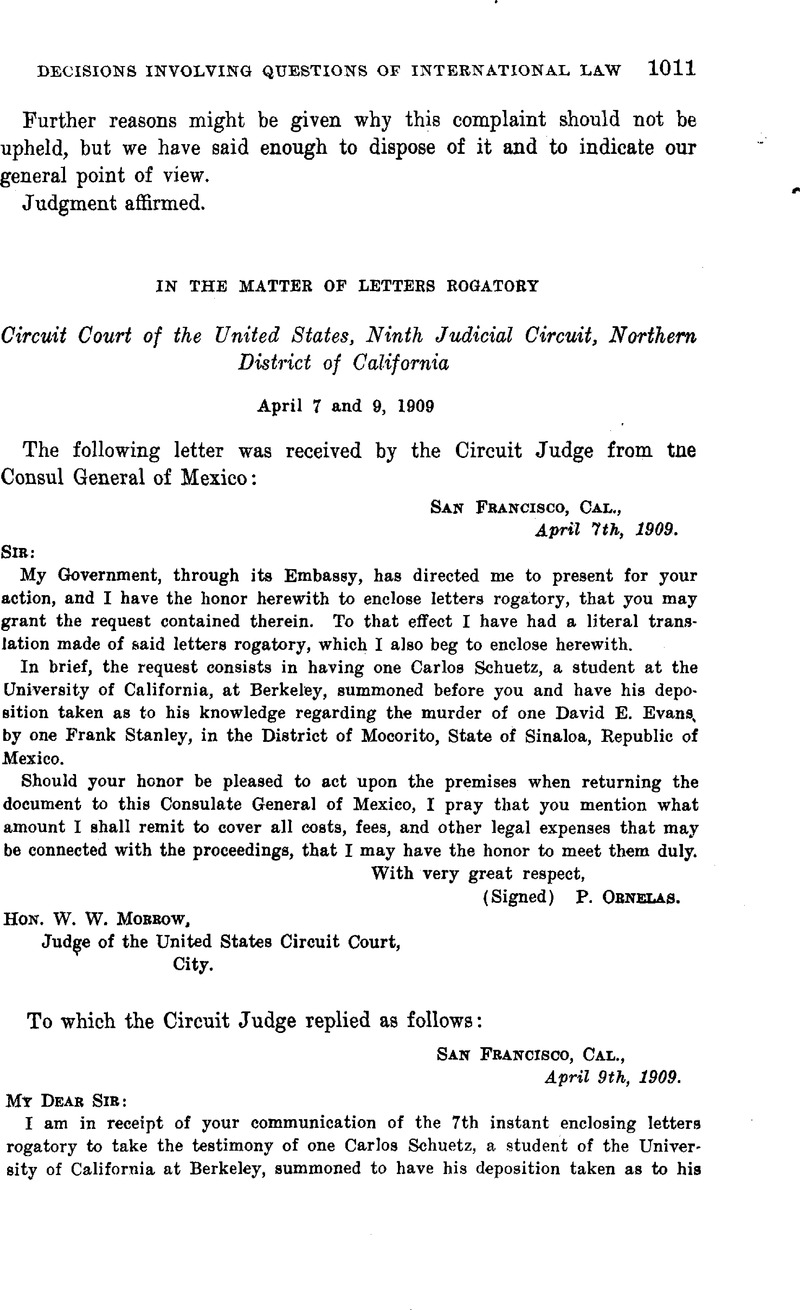Letters Rogatory Explained: Facilitating Legal Teamwork Between Countries

Meaning of Letters Rogatory
Letters rogatory are official requests made by a court in one jurisdiction to a court in an additional jurisdiction, seeking help in obtaining evidence or testament for a legal action. This step-by-step device is vital in the context of global law, where legal systems might vary, and cross-border collaboration is needed. Letters rogatory facilitate the gathering of info that might be crucial for adjudicating situations, specifically in circumstances involving complicated multinational concerns.
Typically, these requests develop in civil, criminal, or management issues where a party requires evidence that lies outside the jurisdiction of the requesting court. The letters function as a method to make certain that the concepts of due procedure are upheld, enabling courts to access evidence that might otherwise remain inaccessible because of lawful or geographical obstacles.
The usage of letters rogatory is controlled by global treaties, reciprocal arrangements, or residential legislations, which define the procedures and responsibilities of the courts included. It is very important to note that the execution of such requests is not guaranteed; they rely on the legislations and methods of the jurisdiction receiving the letter. Hence, letters rogatory are a pivotal device for cultivating lawful participation and making certain justice throughout borders.
The Process of Issuing Letters Rogatory
Issuing letters rogatory entails an organized procedure that guarantees compliance with both domestic and global lawful requirements. At first, the requesting event, commonly a court or lawful authority, drafts an official demand detailing the nature of the aid looked for, the evidence or details required, and the legal basis for the demand. This file has to be exact to help with understanding by the international jurisdiction.

The following step entails transmitting the letters rogatory to the designated international authority. This is usually done with diplomatic channels or global lawful help structures, guaranteeing that the request is received and recognized by the international court. The foreign court then refines the demand according to its own legal treatments, eventually reacting to the requesting event with the desired info or evidence, hence promoting worldwide legal participation.
Relevance in International Regulation
The importance of letters rogatory in international regulation can not be overemphasized, as they act as an essential device for judicial teamwork across boundaries. These formal ask for help in legal issues allow courts in one territory to inquire, proof, or the presence of witnesses from an additional jurisdiction, therefore helping with the management of justice in multinational cases.
Letters rogatory are especially essential in the context of globalization, where lawful conflicts typically cover multiple countries. They allow the collection of proof that may or else be hard to reach, ensuring that lawful proceedings are notified and fair. By promoting cooperation in between judicial systems, letters rogatory help maintain the guideline of regulation and advertise shared regard amongst nations.
Moreover, the use of letters rogatory demonstrates a commitment to worldwide standards and concepts of participation, reflecting the interconnected nature of modern legal techniques. It highlights the importance of sticking to recognized procedures and treaties, such as the Hague Convention, which offers a framework for these demands - Letters rogatory. Eventually, letters rogatory boost the efficiency of lawful procedures, making sure that justice is not hindered by geographical limits
Obstacles and Limitations
In spite of their value, letters rogatory face several challenges and limitations that can hamper their effectiveness. One primary issue is the varying lawful structures and treatments across jurisdictions, which can bring about misunderstandings and delays in the implementation of demands. Different countries might have distinctive needs for the legitimacy of letters rogatory, complicating the process even more.
In addition, the often drawn-out nature of international legal collaboration can prevent timely access to proof or witnesses. This hold-up might negatively impact lawful procedures or continuous examinations, particularly in instances requiring urgent activity. Moreover, the absence of sources and training in some jurisdictions can lead to inadequate handling of demands, leading to incomplete or poor feedbacks.
Countries with much less formal legal systems may struggle to conform with the step-by-step rigor expected in letters rogatory. These challenges require continuous discussion and reform to enhance the effectiveness of letters rogatory this article in lawful participation.
Study and Examples

On the other hand, obstacles can occur, as seen in an instance including a European nation seeking evidence in a continuous criminal issue from a non-EU nation - Letters rogatory. The process was postponed as a result of administrative difficulties and varying legal requirements, inevitably hindering the investigation
These examples highlight that while letters rogatory can facilitate international teamwork and quicken legal proceedings, they likewise highlight the requirement for clear interaction and understanding of lawful frameworks between countries. Such situation researches emphasize the importance of refining this tool to enhance effectiveness and why not check here efficiency in international lawful issues.
Verdict
In summary, letters rogatory offer as a crucial mechanism for promoting legal collaboration between nations, guaranteeing the collection of Source evidence and testament across jurisdictions. Their value in worldwide law can not be overemphasized, as they advertise due process and boost the effectiveness of cross-border legal procedures.
Letters rogatory are formal demands made by a court in one jurisdiction to a court in an additional jurisdiction, looking for help in obtaining proof or testimony for a lawful proceeding. The asking for celebration, typically a court or lawful authority, drafts an official request describing the nature of the assistance looked for, the evidence or info needed, and the lawful basis for the demand. The foreign court after that processes the demand according to its own legal treatments, eventually reacting to the requesting celebration with the sought-after info or proof, thus promoting international lawful cooperation.
Additionally, the usage of letters rogatory shows a dedication to international standards and principles of teamwork, mirroring the interconnected nature of modern lawful techniques.International legal participation with letters rogatory is not without its real-world effects, as illustrated by different instance researches that highlight both obstacles and successes.